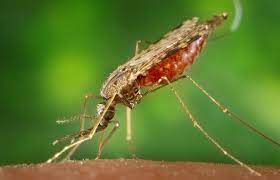Malaria as silent killer, major public health concern
Malaria is a life-threatening disease that accounts for a significant proportion of global cases and deaths. As a tropical country, Nigeria is prone to malaria transmission by the female anopheles mosquito. Alarmingly, 76% of Nigeria’s population is at risk of malaria due to high transmission areas. In 2019, Nigeria accounted for 27% of global malaria […]

new mosquito specie threatens nigeria, others in malaria fight who
Malaria is a life-threatening disease that accounts for a significant proportion of global cases and deaths. As a tropical country, Nigeria is prone to malaria transmission by the female anopheles mosquito.
Alarmingly, 76% of Nigeria’s population is at risk of malaria due to high transmission areas. In 2019, Nigeria accounted for 27% of global malaria cases and 24% of deaths, according to the World Malaria Report, 2020.
In 2021, around 247 million cases of malaria were reported worldwide and about 619,000 people died. Four African countries accounted for just over half of all malaria deaths worldwide: Nigeria (31.3%), the Democratic Republic of the Congo (12.6%), Tanzania (4.1%) and Niger (3.9%).
The disease has far-reaching negative effects on society and the economy. These include high morbidity and mortality, as the disease is a leading cause of illness and death in Nigeria, particularly among children under five and pregnant women.
- Malnutrition: A case of grasshoppers and presidential jets
- Why agitations for secession continue 54 years after civil war
Malaria imposes a significant economic burden on households, communities, and the nation, with costs including healthcare expenses, lost productivity, and reduced economic activity. Repeated episodes of malaria lead to absenteeism, poor academic performance, and increased dropout rates among children.
Now that the rains are here, malaria cases are on the rise, and mosquitoes are building resistance to some drugs. Without mincing words, some people treat malaria all round the year.
The Nigerian government at all tiers and citizens must take the fight against malaria seriously. While the government has a major role to play, the fight against malaria requires collective efforts.
Citizens must implement indoor residual spraying and environmental management strategies to eliminate mosquito breeding sites and the government must increase access to insecticide-treated bed nets.
Dayo DaSilva is a media consultant and publisher, who wrote from Ogun State.
